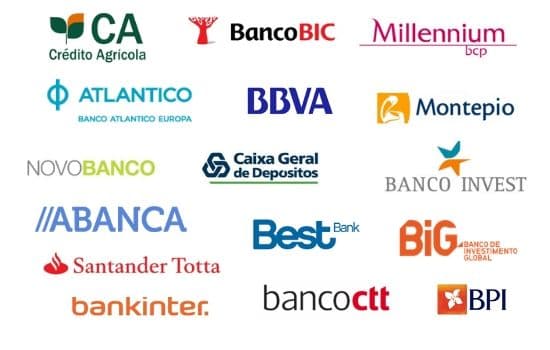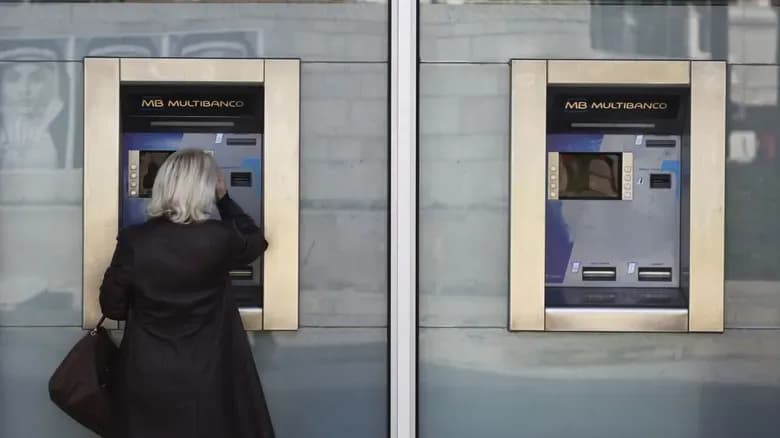
Online Banks and Neobanks Operating in Portugal
Combining innovation, mobility, and simplicity, Portugal is becoming fertile ground for digital banks and the new generation of financial services.
Portugal, known for its hospitality and relaxed lifestyle, is also a country looking toward the future.
In the financial sector, it is establishing itself as a European laboratory for digital banking services.
With a young, connected, and tech-savvy population, online banks and neobanks have found an enthusiastic audience here.
Between the modernity of Portuguese platforms and the strong presence of international players like Revolut and N26, the Portuguese banking landscape is experiencing a genuine transformation.
A Country Embracing Financial Digitalization
For several years, Portugal has been actively promoting digital transformation across all sectors.
Contactless payments, mobile apps, and fully online procedures have become part of everyday life.
The government supports fintech startups and young entrepreneurs, turning Lisbon into a rapidly growing European financial hub.
This modern approach is also cultural: the Portuguese are curious, practical, and quick to adopt innovations that make life easier.
As a result, digital banking services appeal not only to young Portuguese professionals but also to European expats and digital nomads living in the country.
Portugal’s Digital Pioneers: ActivoBank and Banco Best
Two Portuguese banks stand out in the digital sector: ActivoBank and Banco Best.
A subsidiary of Millennium BCP, ActivoBank was one of Portugal’s pioneers in 100% online banking.
It offers a clear and easy-to-use app, no account opening fees, free international cards, and customer service available by chat or phone.
Its philosophy is simple: combine the flexibility of a neobank with the stability of a major financial group.
Users value its speed, transparency, and paperless approach.
Meanwhile, Banco Best, part of the Novo Banco group, focuses more on investment-oriented clients.
Its online platform allows users to manage accounts, investments, stocks, and international funds using modern and intuitive tools.
It’s a popular choice among expats and entrepreneurs seeking a complete English-speaking service.
Major European Neobanks Already Established
It’s impossible to discuss digital banking without mentioning international giants such as Revolut, N26, and Wise (formerly TransferWise).
These players have won over the Portuguese market thanks to their ease of use and multilingual platforms.
- Revolut, originally from the UK, is particularly popular among expats and young travelers.
It allows users to hold multiple currencies, make international payments without fees, and invest easily in cryptocurrencies or stocks.
Opening an account takes just a few minutes through a user-friendly app available in Portuguese. - N26, from Germany, stands out for its minimalist design and transparency.
The neobank offers free accounts, universal Mastercard cards, and clear budgeting tools.
Its English-speaking customer support is highly appreciated by foreign residents in Lisbon and Porto. - Wise has become the benchmark for low-cost international transfers.
It provides a European IBAN, the ability to receive payments in multiple currencies, and uses real exchange rates without hidden fees.
An ideal solution for freelancers and digital entrepreneurs.

Advantages for Expats and Digital Nomads
Neobanks have completely changed the way expats manage their finances in Portugal.
No more long procedures or language barriers: everything is handled online, in English or French, without needing to visit a branch.
They allow users to open an account before even arriving in the country, make instant transfers, and pay anywhere in Europe with no extra fees.
Compatibility with Apple Pay, Google Pay, and other mobile payment options makes them perfectly suited to modern life.
For those who work remotely or travel frequently, these tools offer unparalleled freedom.
Neobanks perfectly embody Portugal’s modern spirit: flexible, international, and connected.
Limitations and Things to Consider
Despite their convenience, online banks do not completely replace traditional services.
Some still don’t offer mortgage loans or long-term savings products.
Additionally, all operations require a smartphone or a stable internet connection, which can be limiting for certain users.
Even though they are regulated in Europe, neobanks do not always have a physical presence in Portugal.
For processes requiring in-person assistance, such as notary documents or complex financing, traditional local banks remain essential.
Complementarity Rather Than Competition
The success of digital banks doesn’t signal the end of traditional banking.
On the contrary, the two models increasingly complement each other.
Many Portuguese combine an account with a national bank (like Caixa or Millennium) with a neobank for everyday expenses.
This dual approach allows users to enjoy the security and familiarity of a local bank alongside the flexibility and speed of a mobile solution.
Portuguese banks have clearly understood this trend and are investing heavily in modernizing their services to stay competitive.
Conclusion
Online banks and neobanks have found the perfect environment to thrive in Portugal.
The country’s youth, digital mindset, and openness make it ideal for these new financial models.
Blending technological innovation, transparency, and user freedom, they are redefining how Portuguese people relate to money.
In a nation where tradition and modernity coexist harmoniously, the future of finance is already being written — and it is unmistakably connected and Portuguese.
Share this article
Suggested articles

Payment Methods in Portugal Cards, MB Way, and Cash
Portugal attracts millions of visitors every year, as well as a growing population of expatriates from Europe, Africa, and the Americas. For newcomers, understanding how payment methods work in the country is essential for managing a budget, making everyday purchases, and avoiding unpleasant surprises.

Mortgage Loans in Portugal : Conditions and Rates
Portugal attracts numerous people every year (expatriates, investors, and future homeowners) drawn by its climate, quality of life, and property prices that are still relatively affordable compared to other European countries.

Money Transfers France ↔ Portugal: Best Solutions
More and more French citizens are living, working, or investing in Portugal. Whether expats, students, retirees, or entrepreneurs, money transfers between France and Portugal have become a daily reality. But with hidden fees, varying transfer times, and sometimes unfavorable exchange rates, choosing the right transfer method is essential.

Opening a bank account in Portugal : how to do it
You’ve decided to settle under the Portuguese sun, coffee in hand and maybe a pastel de nata for dessert ? Excellent choice. But before you fully relax, there’s one essential step : opening a local bank account. Because yes, even in Portugal, things “run smoother” when you’ve got a Portuguese IBAN. Here’s how to do it, without losing your mind, promise !

Real Estate as an Investment in Portugal, Pitfalls and Opportunities
Investing in real estate in Portugal is a dream for many foreigners ! With sunshine throughout the year, a pleasant climate, and a high quality of life, everything seems to be in place for buying a house or an apartment in this small European country. However, behind this attractive image lies an essential reality : the Portuguese real estate market is not fully regulated. This creates both opportunities and potential pitfalls for investors. Understanding how the market functions and where the risks lie is key to making a successful investment.

Withdrawing Cash in Portugal Fees, Pitfalls and Tips to Avoid Surprises
When travelling to or living in Portugal, withdrawing cash may seem straightforward : you find an ATM, insert your card, and take your money. However, behind this simplicity, there can be hidden fees, poor practices, and choices of card or ATM that can significantly increase costs. This guide will help you understand how to withdraw money safely, minimise fees, and avoid unpleasant surprises.


